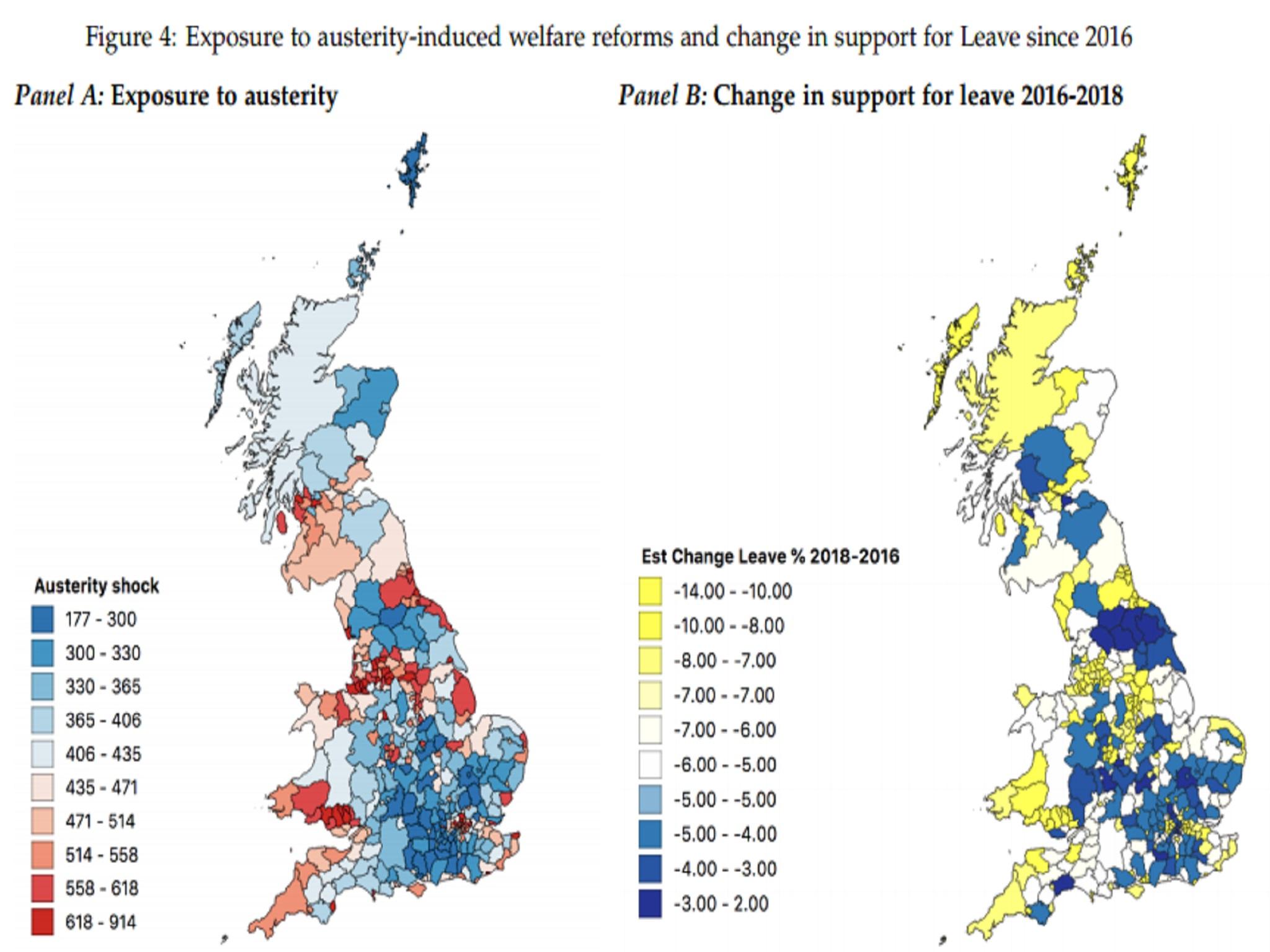Brexit voters hit by austerity now realise how EU membership benefits them, new academic study finds
The findings suggest that the shock referendum result two years ago can be understood primarily as an economically driven protest vote from many of these communities
Your support helps us to tell the story
From reproductive rights to climate change to Big Tech, The Independent is on the ground when the story is developing. Whether it's investigating the financials of Elon Musk's pro-Trump PAC or producing our latest documentary, 'The A Word', which shines a light on the American women fighting for reproductive rights, we know how important it is to parse out the facts from the messaging.
At such a critical moment in US history, we need reporters on the ground. Your donation allows us to keep sending journalists to speak to both sides of the story.
The Independent is trusted by Americans across the entire political spectrum. And unlike many other quality news outlets, we choose not to lock Americans out of our reporting and analysis with paywalls. We believe quality journalism should be available to everyone, paid for by those who can afford it.
Your support makes all the difference.Many austerity-struck Leave voters are switching their support to Remain since they now recognise how European Union membership benefits them, according to a new academic study.
The findings are important because they suggest that the shock referendum result two years ago can be understood primarily as an economically driven protest vote from many of these communities, rather than stemming from a deep-rooted antipathy to European Union membership itself.
The results also suggest that ending free movement for EU workers is not the dominant desire of the UK public, despite Theresa May’s focus on that goal in the contentious withdrawal agreement she has brokered.
Eleonora Alabrese and Thiemo Fetzer from the University of Warwick reached their conclusions by analysing evidence from 20,000 people provided by Survation, which was gleaned between 20 October and 2 November.
They found that many areas that supported Leave in 2016 – including Cornwall, Wales, the north and the midlands – now show a significant swing to Remain.
“While areas whose economy significantly depend on trade with the EU were more likely to support Leave in 2016, this link has become markedly weaker since 2016,” they wrote.
“While an area’s receipt of structural funds from the EU was uncorrelated with support for Leave in 2016, it now is strongly associated with weaker levels of support for Leave in 2018.”
They conclude: “The electorate across the UK may have become more informed about potential economic consequences of leaving the EU.”
The authors also note that Leave areas which had relatively high levels of EU immigration in the 2000s have also shifted markedly.
“The evidence is consistent with the idea that, in the course of the more than two and a half years since the referendum, the UK public has become more informed about how integration with the EU benefits their local communities,” they argue.
Previous survey and geographical analysis by Mr Fetzer suggested that the coalition and Conservative Party’s austerity policies after 2010 were a crucial factor in inducing many lower-income people to vote Leave in 2016.
The austerity Remain swing

The Warwick authors used the evidence to gauge how the public felt about various compromises on the UK’s relationship with the EU.
“A vast majority, even in Leave-supporting areas of the UK, would favour a compromise that does involve free movement of people between the UK and the EU,” they said.
“This suggests that UK politics may, in the present incarnation of the withdrawal agreement, may be solving what is perceived to be a non-problem.”
Leaving the Leave camp

The headline finding of the Survation poll, released earlier this month, was that in a rerun of the Brexit referendum today Remain would gain a winning majority of 54 per cent, compared with 46 per cent for Leave.
An forecasting study produced by the government earlier this year found that parts of the UK that heavily voted Leave, including the northeast and the west midlands, would be likely to suffer the most harm from the UK leaving the single market and customs union.

Join our commenting forum
Join thought-provoking conversations, follow other Independent readers and see their replies
Comments